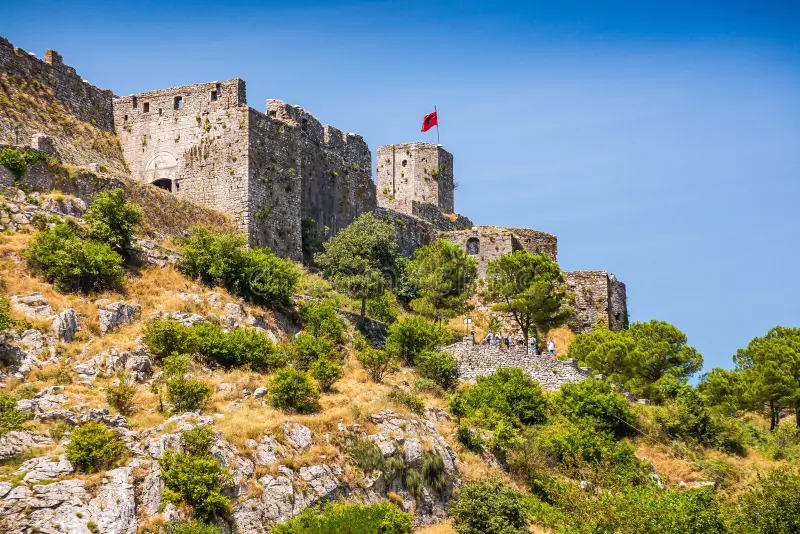
Looking at the historic Albanian stronghold Shkodera in the present day, last to fall 15 years after the death of King Gjergj Kastrioti Skenderbeu, it seems that the city's local politicians have failed to represent the interests of the city of Shkoder and its citizenry.
Having spent much effort in the past in various spheres, and always the nerve centre of a never-ending revolt against the invaders, the ‘balance sheet in terms of return’ is not exactly favourable to the northern stronghold.
The historical right has always remembered the city at election time, only to completely forget about it the day after the election.
The historical left, has limited itself to administering the city but without ever making a real return in terms of investments and services for the city.
I deduce from this that the centralist and centralised policy is fine for today's large city states, which are also doing very well, but it certainly neglects the extremities of the country.
A centralist policy that is fine perhaps in times of peace but certainly not good when the winds of war or turbulence are blowing in the geographical area.
There is always a starting hypothesis, and my hypothesis is that centralist policy must take into account historical and identity factors.
How did the USA beat the USSR?
Economically, of course!
On the one hand the pooling of capital and reinvestment in the country in a harmonious manner throughout the USSR. On the other hand, the pooling of capital and reinvestment in the military structure alone, forcing the country into starvation and a perpetual state of war that historically occurs every eighty-year cycle.
The result was the economic collapse of one side always waiting for the war that never came, and on the other side the flourishing eighty-year period of economic growth and prosperity.
Conclusion, economics and finance matter more than military defence, but without military defence there can never be economic and financial development, as our recent history of 1990 civil war and 1997 civil war shows.
So we need military defence and an economy to be implemented in symbiosis.
How?
It is a bit like building a castle but in our times.
So, little harm if the stronghold city of yesteryear is left behind, it means that it will be able to take advantage of the best ‘knowledge’ available today in terms of both investment and services, which other already ‘built’ cities can no longer do.
So defence first? Yes. And how?
In the same way one thinks of castle defence in our times.
Starting with the most nefarious scenarios such as:
Senario international electromagnetic warfare with return to the Stone Age with zero modern-day technology because pulverised by electromagnetic pulses.
Favourable scenario electro-magnetic war? Technology gap closed.
Vulnerability scenario?
No technology equal free all, national civil war probable, war with neighbouring nations highly probable with imperialistic ambitions of Russians and Turks on one side and old European powers on the other side.
How to do it? How to navigate such pitfalls?
Numerically, there is a large gap with the neighbouring nations, and territorially, too, since there are only a few dozen kilometres between one stronghold city and another.
Territorial gap lost after World War II.
Numerical population gap lost after World War II.
Population growth, very good am inadequate to bridge the numerical gap needed to face the above-mentioned war scenario.
Plausible solutions? Discussion table with Kosovo, discussion table with neighbouring North Macedonia.
Initiate programme for the return of the foreign migrant population.
Employment economy insufficient to accommodate returning migrant masses?
Ten-year economic industrial plan to be launched as a matter of urgency. How?
European rearmament policy and European funds in abundance. Political action at the European level in applying for European EU funds and interests to be paralysed in a hurry.
Malleable war industrial projects, with military and civil heavy industrial production on the same platforms possible?
Of course yes, wars do not last long and economies based on them are bankrupt. Better civil production and exports.
Industrial and economic gap potentially closed in a decade?
If political action at European level works and the game is won, certainly yes.
Which political levers should be used when requesting funds at European level?
THE TRUST MADE IN ALBANIA, at the time of World War I and World War II in the Balkan Area.
No historical precedents in wars, aressions or raids on the other peoples of the Balkans unlike the British, Germans, Italians, Russians, Turks, Serbs, Kroats, Slovenes. Each of the nations has a genocide in its distant and recent history.
What possible political grip?
Aiming at the leading head of the West always, Jewish upper middle class community Rothchilde Frankoforte and Protestant upper middle class community Winston London.
It is up to us to raise the country and it is up to us to preffer and command the area, otherwise you will no longer knock on our door to seek refuge when your people will be hunted down again as in the recent past.
We need European funding to implement our TRUST MADE IN ALBANIA PROJECKT and you gentlemen should buy it.